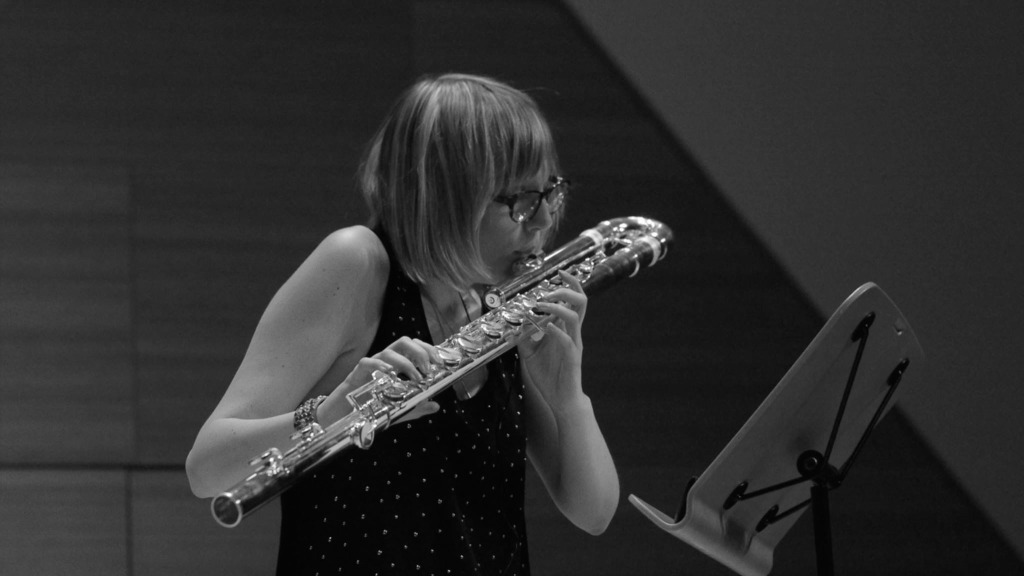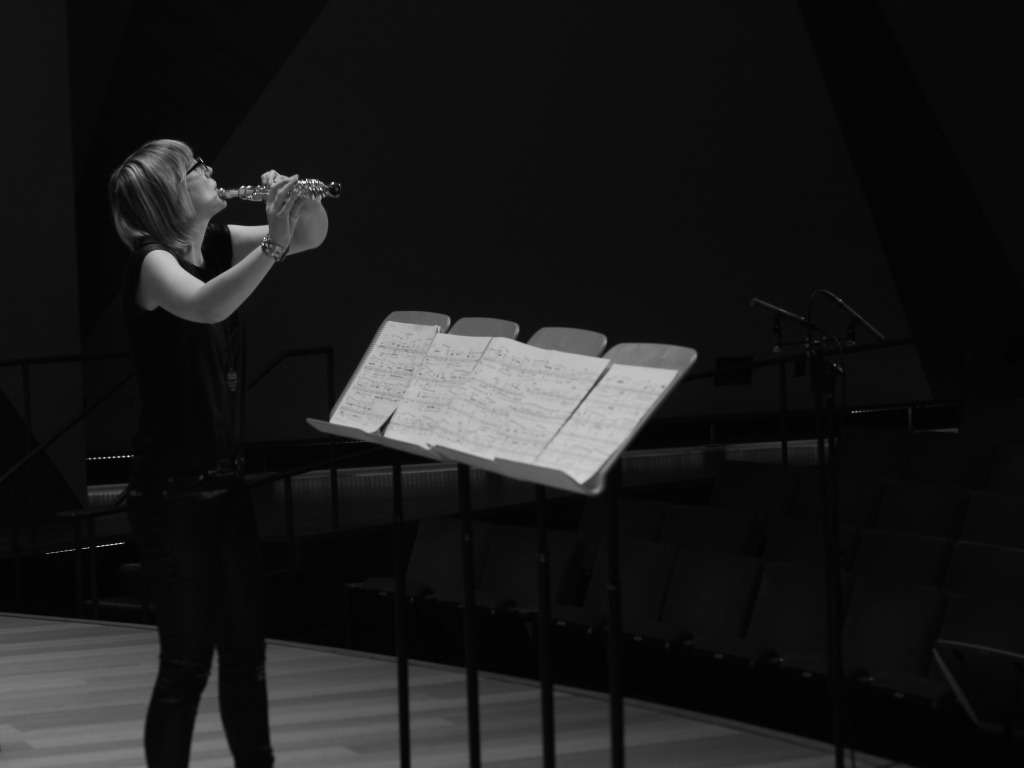Brian Ferneyhough, the so-called father of new complexity, wrote 6 extremely complex and virtuous works for flute solo: Cassandra’s Dream Song (1970) for flute, Unity Capsule (1975-1976) for flute, Superscriptio (1981) for piccolo, Carceri d’Invenzione IIb (1984) for flute, Mnemosyne (1986) for bass flute and tape and Sispyhus Redux (2011) for alto flute.

His music causes a constant struggle for the performer: a struggle against the limits of the instrument, against the limits of notated music, against the limits of the own body and mind.
During my doctoral research I focused on the performance of this repertoire, with an emphasis on embodied performance. His music transforms from complex structures on paper into powerful and affective music, through the performer’s body, mind and instrument. The constant struggle to expand one’s personal limits makes his music so personal and alive.
Every piece functions like a microclimate: it is a world within a world, where it is almost impossible to tear down the confined walls and experience a personal freedom.
That duality in Ferneyhough’s music – obsessive control of information against total freedom in the performance – has been a musicological topic since his first piece has been performed.
As a performer of his music, I try to unravel this fine balance by very meticulously absorbing all the information on the score and to expand that information beyond my personal limits of that moment. Every piece has its own specific limitations and problems; every piece deserves a specific approach and attention.
Where Cassandra’s Dream Song is a modern and complex transcription of an ancient myth, Superscriptio is a mathematical fight against the nature of the piccolo. In Sisyphus Redux there is a real risk of experiencing Camus’ philosophy of the absurd, while Carceri d’Invenzione IIb confronts both the performer and the audience with the limits of unbearably high and loud registers. Unity Capsule tests the performer because of the extreme length of a piece of this genre, while Mnemosyne transcends the limits of information in notated music.
The result is music that is constantly generating: music that tears down the confined walls of unity.

This solo recital contains the six solo pieces for flute by Brian Ferneyhough:
Superscriptio for piccolo solo (1981): 5’
Carceri d’Invenzione IIb for flute solo (1985 – 1986): 11’
Mnemosyne for bass flute and pre-recorded tape (1986): 11’
Unity Capsule For flute solo (1975-1976): 15,
Sisyphus Redux for alto flute solo (2011): 8’
Cassandra’s Dream Song for flute solo (1970): 10’
